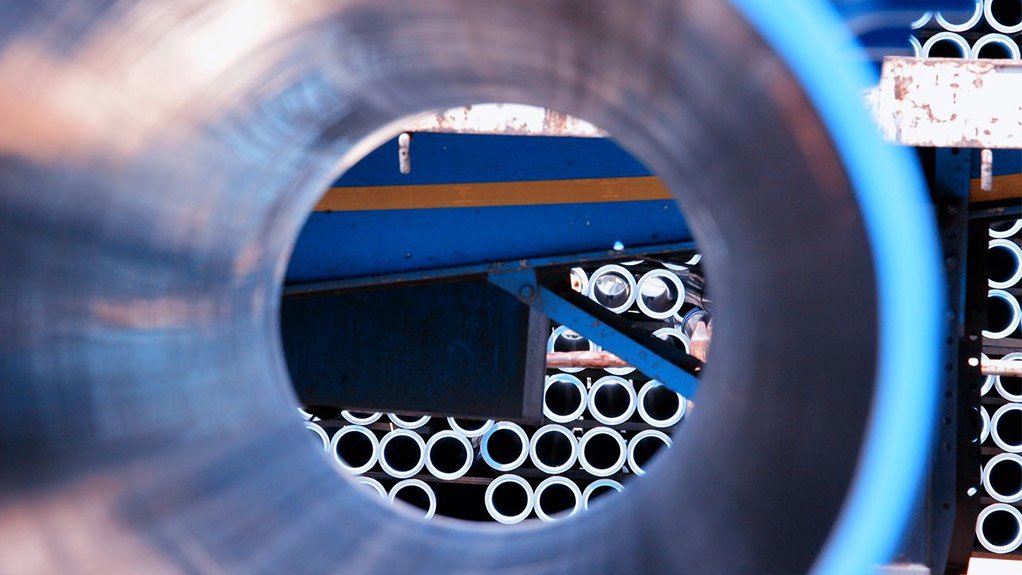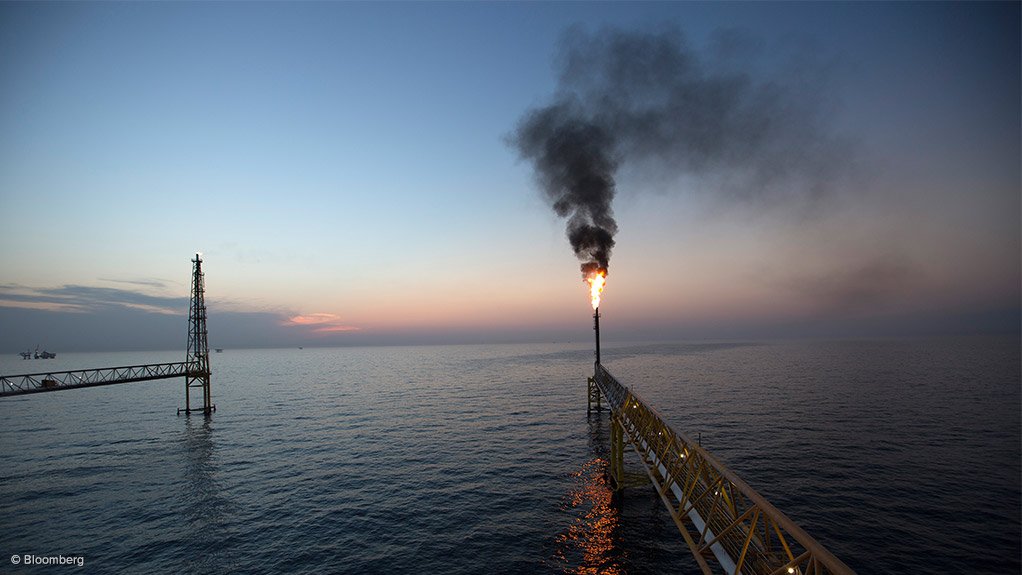First local policy for gas pipes released



GAS PIPELINE New policy will act as a guideline for any new gas pipelines being built
GAS REGULATION The policy will help to regulate the gas piping industry in South Africa
Photo by Bloomberg
The Southern African Plastic Pipe Manufacturers Association (Sappma) has released the local industry’s first policy statement for the supply of gas fuels using polyethylene pipes, in order to ensure that the application and use of PE pipes conform to South African National Standards (SANS) International Standards Organisation (ISO) 4437:2014.
This follows the appointment of a Sappma task team headed by independent plastics manufacturer Safripol technical service and development engineer George Diliyannis at the end of last year. The team was tasked with investigating the requirements of the current specification and compiling a guidance document for Sappma that would ensure high standards of pipe manufacture and installation in gas installations.
Sappma CEO Jan Venter explains that the aim of this policy is to ensure that Sappma members fulfil the safety requirements of their pipeline customers in the natural gas market by providing additional guidelines on the practical application of the SANS ISO 4437:2014 standard.
“The gas industry in South Africa is growing rapidly and Sappma recognises that it has a responsibility in this regard. Gas pipelines will increasingly become an important part of the country’s infrastructure. Extended working lifetimes and uninterrupted, safe supply of gas are therefore essential and will only happen if the pipes and the pipelines are prime quality,” says Venter.
He further explains that high-density polyethylene (HDPE) is currently the only viable plastic pipe material for gas pipelines and satisfied customers and consumers are more likely to ensure that plastic pipe is specified for future gas pipeline projects. It is important to ensure the integrity and safety of gas pipelines produced from HDPE.
“The supply of gas pipe which conforms to all requirements of SANS ISO 4437:2014 and which ensures the safety of people and the surrounding environment is paramount to the continued growth of this segment,” he explains.
Venter points out that pipe construction methods – covered in the new policy statement – include solid orange pipe, solid black pipe with orange identification stripes as well as coextruded pipe with an orange outer layer and a black inner layer.
“It is Sappma’s responsibility to ensure that the pipes used in gas pipelines have been manufactured according to stringent specifications and adhere to global standards. The new policy will play a major role in ensuring that Sappma members follow all the requirements of the standard by ensuring that they are correctly interpreted,” Venter explains.
He says the new policy will further ensure that local conditions and customer preferences are taken into account. It will also ensure that satisfactory quality control and quality assurance measures are applied during material selection and the subsequent manufacture of pipelines for the safe transport of natural gas.
“Extensive tests conducted over the last 45 years have confirmed that the long-term strength of plastic pipes is unaffected by natural gas and its common constituents, making them the ideal material to use in gas pipelines,” Venter explains.
He adds that HDPE pipes offer numerous benefits for gas pipe installations, in that they are lightweight and easy to handle, easy to join, available in a range of sizes and pressure ratings and have low frictional resistance, with hydraulic properties that remain virtually unchanged over their useful life.
He highlights that all Sappma members have access to the new policy document and Sappma will be carrying out audits to look for evidence that this policy is being adhered to and that the requirements of the standard are being met.
“Displaying the Sappma mark on gas pipes will now give added assurance that these pipes have been manufactured according to international standards and that they are guaranteed to meet, if not exceed, industry standards,” Venter concludes.
Article Enquiry
Email Article
Save Article
Feedback
To advertise email advertising@creamermedia.co.za or click here
Announcements
What's On
Subscribe to improve your user experience...
Option 1 (equivalent of R125 a month):
Receive a weekly copy of Creamer Media's Engineering News & Mining Weekly magazine
(print copy for those in South Africa and e-magazine for those outside of South Africa)
Receive daily email newsletters
Access to full search results
Access archive of magazine back copies
Access to Projects in Progress
Access to ONE Research Report of your choice in PDF format
Option 2 (equivalent of R375 a month):
All benefits from Option 1
PLUS
Access to Creamer Media's Research Channel Africa for ALL Research Reports, in PDF format, on various industrial and mining sectors
including Electricity; Water; Energy Transition; Hydrogen; Roads, Rail and Ports; Coal; Gold; Platinum; Battery Metals; etc.
Already a subscriber?
Forgotten your password?
Receive weekly copy of Creamer Media's Engineering News & Mining Weekly magazine (print copy for those in South Africa and e-magazine for those outside of South Africa)
➕
Recieve daily email newsletters
➕
Access to full search results
➕
Access archive of magazine back copies
➕
Access to Projects in Progress
➕
Access to ONE Research Report of your choice in PDF format
RESEARCH CHANNEL AFRICA
R4500 (equivalent of R375 a month)
SUBSCRIBEAll benefits from Option 1
➕
Access to Creamer Media's Research Channel Africa for ALL Research Reports on various industrial and mining sectors, in PDF format, including on:
Electricity
➕
Water
➕
Energy Transition
➕
Hydrogen
➕
Roads, Rail and Ports
➕
Coal
➕
Gold
➕
Platinum
➕
Battery Metals
➕
etc.
Receive all benefits from Option 1 or Option 2 delivered to numerous people at your company
➕
Multiple User names and Passwords for simultaneous log-ins
➕
Intranet integration access to all in your organisation




















